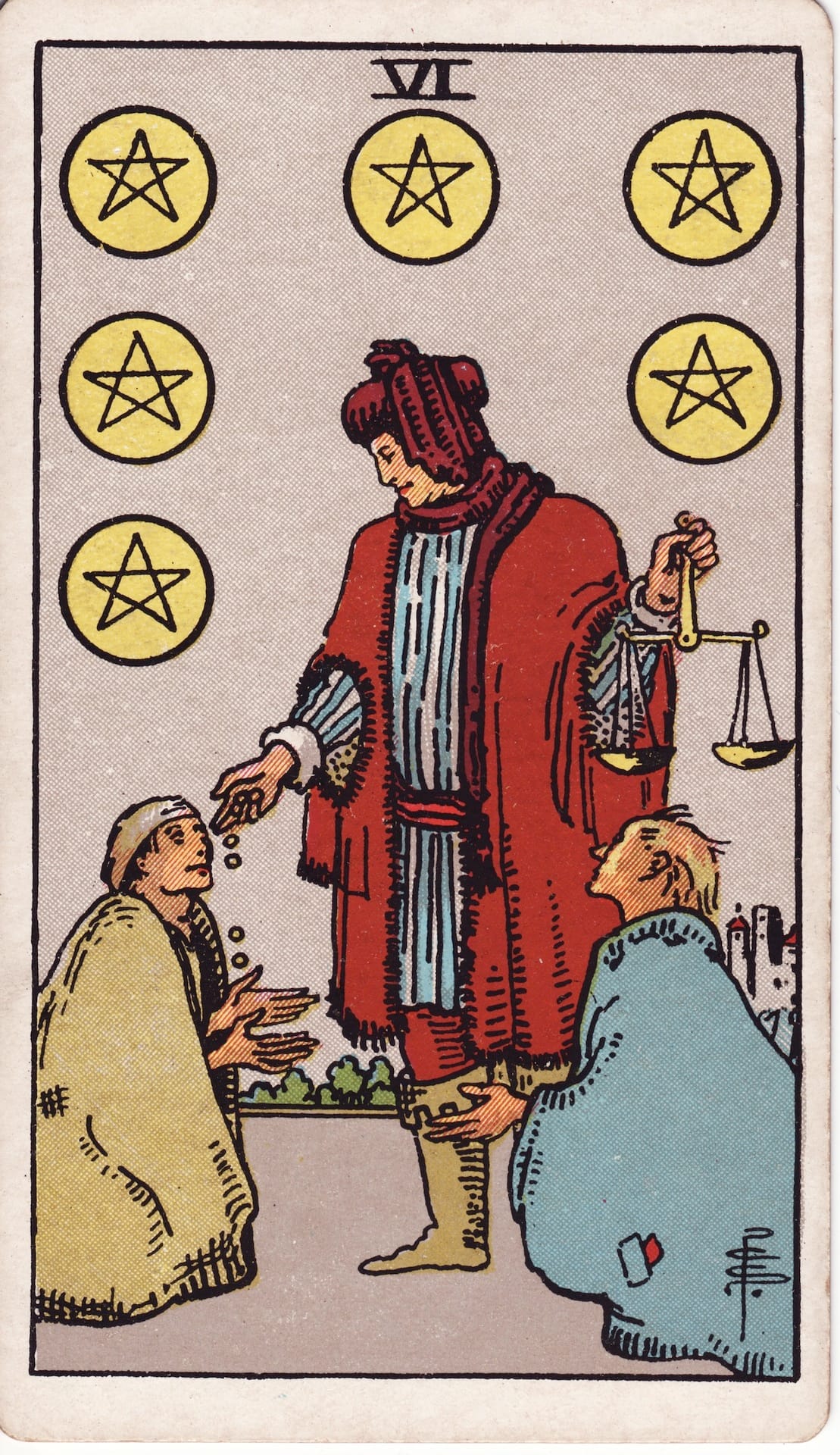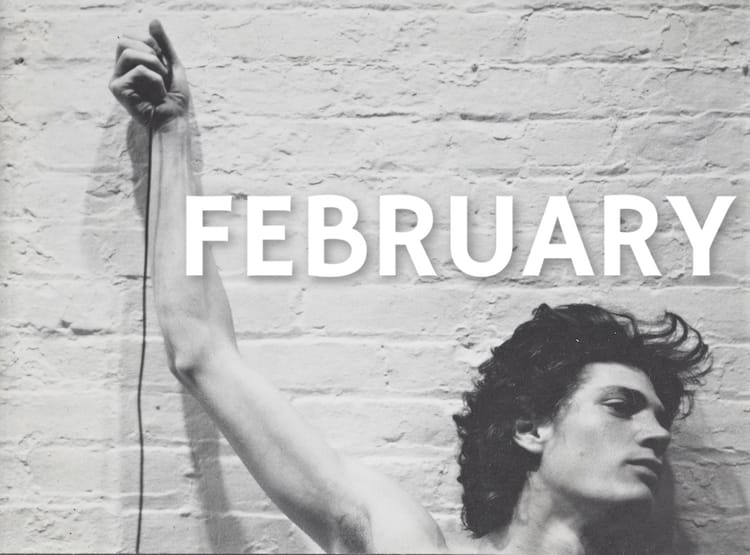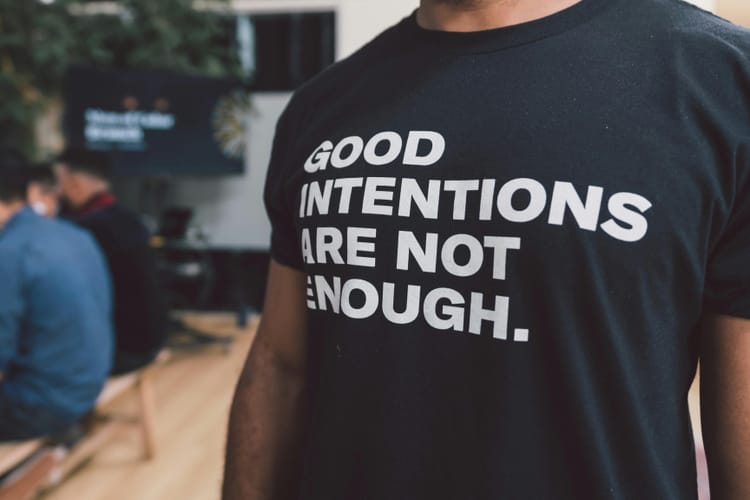September 2024: Money and Power

This is the inaugural edition of 8th House's monthly newsletter for paid subscribers. Free subscribers are receiving preview access to this one so you can check it out. (You can also read the first edition of last week's free Monthly Q&A Mailbag here if you missed it!)
Attendees from my summer grantwriting classes and subscribers to my personal newsletter have been added to 8th House at the free tier; but we all have busy lives and crowded inboxes, so you will not hurt my feelings if you unsubscribe!
If you're interested in more in-depth information, like teaching tools, downloads, pro tips, etc., the paid monthly newsletter starts at $5 a month, and you can get a discount on all annual plans until September 15th by clicking here!
“We live in capitalism. Its power seems inescapable. So did the divine right of kings. Any human power can be resisted and changed by human beings. Resistance and change often begin in art, and very often in our art, the art of words.”
--Ursula K. LeGuin
Lesson of the Month:
Fundraising Is Not Asking For a Favor

In 25 years of friendship, the one and only real argument I've ever had with my college housemate Evan was about Amanda Palmer.
(Stick with me. This is going somewhere.)
I do not, at present, in the year of our labor movement two thousand and twenty-four, think particularly highly of Amanda Palmer (former lead singer of the Dresden Dolls / ex-wife of a famous novelist who looks more and more sketchy with each news cycle / deeply bizarre internet asshole). But you have to cast your memory back to 2013 and remember that this was a time when "thank you for coming to my TED talk" was something that a famous person said after delivering some seven-minute monologue with a headset mic and breaking the internet; as opposed to now, when it's something we all tag onto the end of any too-long social media post as a non-apology apology for getting heated about how the "no eliminations" format on RuPaul's Drag Race may have worked just fine during the All Stars All Winners season, when you wanted to see every queen execute every challenge and runway look, but continuing it as a general All Stars practice makes judging effectively meaningless because there are no consequences for doing a half-assed job at something and no one gets real critiques so the energy is flat.
(Or, you know, whatever your version of that rant is.)
Anyway, in 2013 Evan and I were both in our early thirties and working underpaid arts nonprofit jobs, and Amanda Palmer was an internet celebrity who had just delivered a TED talk called "The Art of Asking" (no I'm not linking to it, seriously guys she's so sketchy) which later became the foundation for her book of the same name. The thesis of her talk was her belief that artists go about the process of asking for money to support their work in the wrong way, and how to reframe it from something that feels like a handout to something that feels like a partnership.
This is still, to this day, one of my most-repeated and most valuable pieces of fundraising advice, not just for artists, but for anyone who feels just the tiniest bit cringe whenever you have to ask someone for money: you are not begging them for a handout or asking them for a favor. You are offering them the invitation to become part of something awesome that you believe in.
I, a person who worked in arts development and also often had to seek funding for my own creative work, found her explanation really compelling, and I remember sitting on Evan's couch in his Pasadena apartment explaining with increasing fervor that Amanda Palmer had done something revolutionary that was going to become a hugely valuable tool for artists by helping them learn to reframe fundraising and take their own power back in situations where they were dealing with somebody holding the purse strings, because artists are horrible at talking about money.
Evan pointed out, also with escalating intensity (and correctly! Evan is the good guy in this story!) that in the abstract, that idea might be sound; but in practical terms, one of the ways Amanda Palmer was "offering an opportunity" to fans to support her tour was by playing music with her for free, which was an extremely deft workaround to avoid using the money from an enormously successful Kickstarter campaign to pay union musicians.
Eventually we stopped, looked at each other, realized we were legitimately arguing for the first time in our lives, and sort of mutually realized the absurdity of having our first fight be about Amanda Palmer, which deflated the tension and then we were fine. (Though to this day, whenever she's in the news for being a garbage person about something, I text Evan and give him another chance to gloat.)
Having continued to give this question a great deal of thought over the years, I've come to the conclusion that the most crucial variable in the moral equation is power. If you are a famous musician asking your fans to play music with you on your tour, you are perfectly aware that most of them will be so psyched at that opportunity that it will never occur to them to ask whether this is exploitative, whether a person who wants to tour backed by a huge orchestra but doesn't want to pay orchestra musicians is refusing to reckon honestly with the cost of her art. Asking someone with less power to do you a favor is not a balanced exchange. In the abstract (which is all TED talks are), the idea was really intoxicating; in practice, it was offensive and frustrating to union orchestra musicians, by kind of treating them as disposable background noise whose skills could be filled just as well by anyone who raised their hand as the tour passed through their city.
But where I do find that there actually is real value in it, and the reason it's still something I say all the time to the nonprofits I work with - especially the small ones - is for those times when you have to go ask for money from someone who (in our capitalist society) holds a hell of a lot more power than you do. In that circumstance, it can actually be a powerful story to tell yourself as you walk into that bank trustee's office. You're not crawling in on your hands and knees begging someone to deign to look down from his pedestal and toss you some scraps; even though we all feel like that sometimes. But you believe in your work. You wouldn't be here if you didn't. You think it matters. You feel like your own life has been enriched by being part of it. So you walk in there with your shoulders back and your head held high, and you tell yourself that you are the one doing the other guy the favor.
That's the reframe.
You are the one with the power in that situation, because what you hold in your hands is the opportunity for this guy to become part of something really cool and important.
And even if it's not literally, factually true - even if the hellscape of late-stage capitalism means the guy in the suit does have more power, and always will - he doesn't have all the power, and you do not bow to him. You stand on your own feet and you tell him why he should be so lucky as to become part of the monumentally awesome, world-changing shit that you guys are doing. Even if the only thing it changes is how you feel when you walk into the room, I think it's valuable.
In tarot, the suit of pentacles (also sometimes called the suit of coins) is generally associated with the realm of the material - our health and our physical bodies, our work and finances, our home and hearth and possessions. The image on the six card depicts a wealthy man bestowing a scattering of gold coins on a pair of beggars kneeling at his feet. He holds a scale in one hand, which is evenly balanced - symbolizing justice and fairness - but he's only handing out gold coins to one of the two beggars; the other's hands are still empty.
The meaning of the card shifts depending on where you place yourself in the image; many traditional interpretations center the viewer in the rich man's point of view, where the card may mean your own resources are stable enough that you can afford to be generous without taking too much of a hit.
But if you spend your days doing this kind of work, it's often easier to see yourself in the other two figures. They're both in need. Their blankets are worn and patched. There are so many more worthy nonprofits and social causes in your community than the philanthropic sector can possibly support fully. The beggar receiving the handout has a bandage around his head; does that mean they've both been weighed and measured and he was determined to be the most deserving, the one whose need is greatest? Will it be the other guy's turn next, or are they in competition with each other for the same handful of gold coins?
Other interpretations of the card view it differently - not as two qualitatively different kinds of people, but simply as two different moments in life, which might happen at any time to any one of us. Sometimes we'll be the person with resources we can share and give away; sometimes we'll be the person who needs to ask for help. In our context, maybe the challenge is about perspective. You are not just taking and taking; your work matters, so you also have something to give. If we treated both the giver and the receiver as equal, and the exchange as a circular one - where grant funding is flowing in one direction, and engagement in your organization's vital, vibrant work is another - then the power hierarchy baked into the imagery loses its hold on us.
Maybe what your donors are receiving from you is a cleaner river to swim in, or new trees planted to heal your forests after wildfires. Maybe what they receive is the comfort of knowing that no matter what the government does, they'll be able to access gender-affirming or reproductive health care if they need it. Maybe it's making sure that every kid at their local school has access to food and a computer and educational experiences that make them excited to learn. Maybe it's a night out at the theatre which blows their mind, and gives them so much to talk about that they all text their babysitters to say they'll be home late and find a wine bar that's still open so they can keep talking about the show they just saw. Gold coins are not the only currency of value.
But also?? Pay your goddamn musicians.
Thank you for coming to my TED talk.
Reflection Questions
(Discuss with your colleagues and communities or drop your thoughts in the comments of this post!)
Is it uncomfortable to think about asking someone for money, even when it's part of your job? Are you able to trace that discomfort back to a source (grew up in a family where finances were never discussed; hate asking for favors; feeling personally rejected if they say no) and identify it? Does naming it help take away its power at all?
Do you find it intimidating to deal with people who have - or have control over - way more money than you do? Do you feel obligated to perform certain class markers when you deal with certain donors?
If you work at a nonprofit, what is your organization's relationship to your volunteer supporters? Are you working in collaboration with them, or are you reliant on unpaid labor in ways that might exacerbate a power imbalance? How do your non-board volunteers and interns benefit and grow from their time with you? Since they are not being paid, how are they recognized, affirmed, compensated, and thanked for their contribution?
Have you ever had an experience in a nonprofit workplace where you were required to "volunteer" your time outside of work hours (for example, to help out at events on evenings and weekends) without compensation or the ability to say no? Did that affect your feelings about that job? If you work at a nonprofit where this is a requirement, does the practice of it feel fair to you? Is it disproportionately falling on younger or lower-paid staff with less power to set boundaries? Are you noticing increased employee burnout? (We'll be talking about this in February!)
UPCOMING EVENT
Join Claire and a panel of nonprofit leaders for an honest, wide-ranging discussion unpacking all your thorny questions about wrestling with all the ways this work can challenge our values and morals. We'll talk about how you decide when to say no to a check with strings attached, how you hold onto your soul when your organization is in business with a funder whose beliefs are anathema to you, how to extricate reputation laundering from your development operation, and so much more.

Quarterly Zoom Roundtable & Q&A
Session #1: "The Ethics of Asking for Money"
November 2, 2024
10 am - 1 pm PST
Live Class Pricing:
--$200 for non-members, High Desert or Multnomah Falls tiers
--$150 for Haystack Rock tier
--$100 for South Sister and Mount Hood tiers (also includes one free guest)
We're gonna roll up our sleeves and get all the way into it. Hope to see you all there!
P.S. If you're unavailable that day, don't despair; a recording and transcript will be available after the event for $50!)
Nonprofit Spotlight

The grantwriting classes which first launched 8th House wouldn't have been possible without Avery Friend and MaineTransNet - Maine's only organization specifically focused on supporting transgender people - who hosted us on their video meeting platform and ran the technical and logistical side of the classes for me (a trade we arranged so that anyone at their organization who was interested could take the class for free). The organization's mission is "to support and empower transgender people to create a world where they can thrive." From their website:
MaineTransNet is a community based organization led by transgender people for transgender people. We provide peer-to-peer support groups, social and community events, advocacy for the transgender community across Maine, and training for medical, mental health, and social service providers. We engage transgender people and our allies across Maine in the practice of community building and organizing for mutual liberation. Our work is rooted in a deep desire to care for one another which informs how we build systems of mutual support centering accessibility, inclusivity, and hospitality. We view structures of power and oppression as interlocking, and believe in finding our leadership among those with lived experience.
You can donate to them here!
Monthly Funder Spotlight

The Costco Foundation
The Costco Foundation accepts grants on a rolling basis (meaning, no set deadlines) throughout their fiscal year, which begins in September; that makes now a good time to get in the door. Their stated area of interest: "Costco Wholesale’s primary charitable efforts specifically focus on programs supporting children, education, and health and human services in the communities where we do business." So if you live within proximity to a Costco, you're in luck!
There are two potential funding avenues through the Costco Foundation. Both say to expect a turnaround of 4-6 weeks and require a 501c3. You'll find a lot of valuable hints in these FAQ on how to strengthen your application.
The Warehouse Donations program appears to be an extremely simple one-page form (link to PDF here) which collects some very bare-bones contact and program info that you print out and bring in to the manager of your local Costco store. If you have a relationship to leverage there (does someone on your board know an employee, etc.), it may help you. The amounts will be smaller, but for a program with deep local community roots, this might be the best way to go, and the application process couldn't be simpler. They recommend contacting your local store in advance to ask about their deadlines, policies, and the contact person for donations.
The Grant Applications program runs through an online fundraising platform called Benevity (link to portal here) and goes through their national corporate foundation, so the priorities will be a little different. The FAQ state that "decisions are made based on several factors, including: type of program; identified community need not otherwise available; indication that evidenced based data will establish measurable results of intended outcomes; community collaboration; broad base of financial support; project budget and operating expenses." They recommend a conservative ask for your first attempt, and never more than 10% of your program's budget. The application itself would qualify, in my opinion, as a medium level of fussy, and that's really only because the way you have to input the org's financial info is in a tedious form which requires a lot of math (i.e. breaking down all your organization's sources of income not just by dollar amount but by percent of the whole. Annoying). The narrative is pretty short, so I would err on the side of making your cover letter a juicy two-pager rather than a brisk and efficient one-pager. The only other attachments besides the cover letter are a W9, your operating and program budgets, and your impact report if you've ever been funded by them before, but no other attachments.
All in all, this is a pretty accessible beginner-level grant that won't ask you for anything that breaks your brain. If you were in my summer grantwriting classes, the info needed to complete this one is pretty much all covered by the building blocks we went over. If your programming fits into their eligibility criteria, I would strongly suggest adding this one to your list!
This was a free preview of the 8th House monthly newsletter for paid members. If you're a free subscriber and you enjoyed this post, upgrade now to get the next one while the sale's still on - 20% off all annual plans through September 15th!




Member discussion